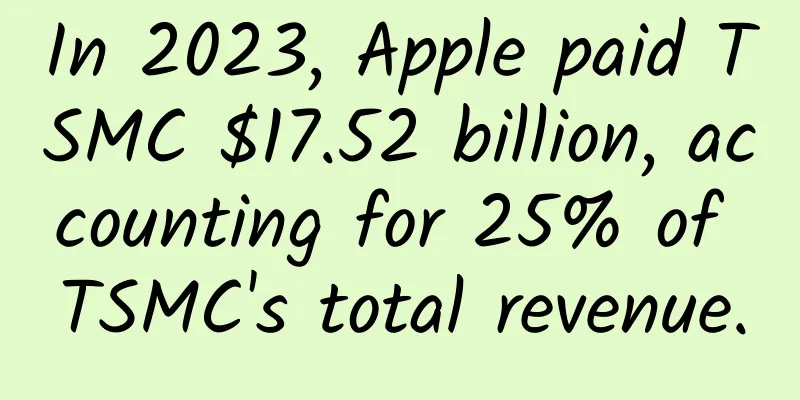Are you not happy eating fried chicken? A major study in Nature shows that a high-fat diet is "hijacking" your dopamine

|
Have you ever had this experience: after not having fried chicken, cake or milk tea for a while, you feel it is delicious when you enjoy it again, but as you eat it more frequently, the pleasure it brings gradually decreases? Many studies have shown that this phenomenon is not only related to psychological habits, but also closely related to a key neural circuit in the brain. Recently, a study published in Nature revealed that a long-term high-fat diet can destroy the neural signals responsible for "food happiness" in the brain, resulting in a decrease in the reward value of food, and may even promote the occurrence of obesity. The study was conducted by a research team from the University of California, Berkeley. They found that a neural pathway in the brain called "lateral nucleus accumbens (NAcLat) → ventral tegmental area (VTA)" is responsible for regulating our desire for high-calorie foods. A long-term high-fat diet inhibits a key molecule in this pathway, neurotensin (NTS), which eventually makes the food "not fragrant" . This discovery not only explains why obese people gradually lose their pleasure in high-calorie foods, but also points out potential treatment pathways. How does a high-fat diet cause the brain's "happiness system" to malfunction? Our brain has a sophisticated "reward system" that releases chemicals such as dopamine when we eat delicious food, making us feel happy. The NAcLat→VTA pathway is a key part of this system, which is responsible for evaluating the "happiness value" of food and determining whether we are willing to continue eating. In this study, the researchers fed mice high-fat foods (similar to fried chicken, French fries, etc. in humans) and found that although these mice still chose high-fat foods in the cage (because they have higher calories), their pleasure of high-calorie foods was significantly reduced in a free-choice environment. It's like a person who knows that fried chicken is delicious, but when he really tastes it, he can't feel the pleasure of the past, as if he is just mechanically completing the action of eating. This state of "not knowing the taste of food" is a typical manifestation of impaired function of the brain's reward system. Further research found that a high-fat diet reduces the secretion of NTS in the NAcLat→VTA pathway. NTS is a neuropeptide that enhances the brain's response to reward signals. When NTS is reduced, the activity of this pathway decreases, resulting in a weakened perception of pleasure in mice (or humans) about delicious food. Neurotensin: The key molecule that determines "food pleasure" NTS is not a newly discovered molecule, but its role in dietary reward has not been fully understood in the past. This study is the first to demonstrate that the reduction of NTS in the NAcLat→VTA pathway directly leads to the "lack of pleasure" in mice fed a high-fat diet. To verify this, the researchers conducted several key experiments: 1. Optogenetic activation experiment: When laser is used to stimulate the NAcLat→VTA pathway of mice on a normal diet, they will eat high-calorie food crazily; but when the same stimulation is given to mice on a high-fat diet, their eating behavior does not change, indicating that this pathway has "malfunctioned." 2. Gene knockout experiment: When the NTS in the NAcLat of mice is artificially reduced, they will show a decreased interest in delicious food even if they eat a normal diet. 3. NTS receptor blocking experiment: If NTS receptor inhibitors are injected into the VTA area, the mice's desire for high-calorie food will also be reduced. These experiments prove that NTS is an indispensable "happiness signal amplifier" in this pathway, and a high-fat diet will destroy its function. The vicious cycle of obesity: Why do we feel less satisfied the more we eat? This study also revealed a worrying phenomenon: a high-fat diet not only reduces the hedonic value of food, but may also put people into a vicious cycle of "the more you eat, the fatter you get, and the fatter you get, the less you want to move." Under normal circumstances, NTS signals promote the release of dopamine, making us feel satisfied when we eat delicious food. But when NTS decreases, the brain's response to food becomes weaker, causing people to need to eat more to get the same pleasure. This is like a drug addict who needs to keep increasing the dose to achieve the same pleasure, which eventually leads to overeating and weight gain. What’s worse is that a high-fat diet can also affect the willingness to exercise. Studies have found that mice with weakened NTS signals not only have less interest in food, but also less exercise. This may explain why obese people are often accompanied by the phenomenon of "laziness" - not because they don't want to move, but because the brain's reward system has become sluggish. Since a decrease in NTS can lead to a decrease in happiness perception and obesity, can this process be reversed if NTS is artificially increased? To this end, the researchers tried to use gene therapy to overexpress NTS in the NAcLat→VTA pathway of obese mice, and the results were exciting: The mice regained their appetite for high-calorie foods but did not overeat. They also showed a marked slowing of weight gain, increased activity, and even reduced anxious behavior. This means that in the future, the medical community may be able to regulate NTS signals through drugs or gene therapy to help obese patients restore normal appetite regulation while avoiding overeating. How to avoid the failure of the “happiness system”? Although this study is mainly based on mouse experiments, it has important implications for human health. The prevalence of high-sugar and high-fat foods in the modern diet may cause our reward system to become "numb" over time, leading to a dilemma of "the more we eat, the less happy we are." To avoid this, we can adopt the following strategies: 1. Reduce long-term high-fat diet: It is okay to eat junk food occasionally, but if fried chicken, potato chips, and milk tea are the staple food for a long time, the NTS signal of the brain may gradually weaken. 2. Diversified diet: Different foods can activate different reward pathways, avoiding "happy fatigue" caused by a single food. 3. Focus on future therapies: If NTS enhancement therapy is proven effective in humans, there may be drugs in the future to help obese patients restore normal appetite regulation. This study reveals the deep connection between obesity and the brain's reward system: a long-term high-fat diet reduces NTS signals, making food taste "unappetizing" while promoting weight gain and reduced exercise. This discovery not only explains why many people fall into the cycle of "the more they eat, the fatter they get, and the fatter they get, the less they want to eat", but also provides a new direction for future obesity treatment - by regulating NTS signals, the medical community may be able to help people restore healthy eating behaviors and say goodbye to obesity. In the future, the research will further explore how to safely regulate the NTS pathway in humans, so that we can enjoy the pleasure of food without worrying about health risks. Until then, eating a proper diet and keeping active are still the best ways to maintain the health of the brain's "happiness system." Reference: Neta Gazit Shimoni, Amanda J Tose, et al. Changes in neurotensin signalling drive hedonic devaluation inobesity. Nature. Published online March 26, 2025. |
Recommend
I'm not angry, if I get breast hyperplasia...
I believe many people have heard the saying "...
The conversion rate is too low! How to write product introduction copy?
Recently I saw an activity called “100-Day Progre...
What are the 25 most popular money-making projects in 2020 and the side jobs suitable for office workers?
2020 is about to pass, and I originally wanted to...
4 details determine whether private domain can make money
This article uses the private domain path formula...
Android Webview Java and Javascript safe interaction
Recently, I need to detect the source code of a w...
How do brands formulate promotion strategies?
Each enterprise is at a different stage, so the p...
Does advertising have an “effect”?
The advertising industry usually uses superficial...
Tik Tok live broadcast room accurate collection of customer acquisition tools sold outside 200 [customer acquisition artifact] [permanent version script + operation tutorial]
Douyin live broadcast room accurate collection of...
Robots could destroy our jobs, our economy, and our world
At the American Association for the Advancement of...
Mango TV injects new vitality into the user experience of ZIVOO Smart Mango Ice Box
The most beautiful TV box has ushered in a new up...
The fighting power of fishy smell is comparable to that of a nuclear bomb, but some people prefer this taste...
How can anyone like to eat fishy-smelling food! A...
Xi'an high-end catwalk selection is arranged throughout the city, recommending exciting projects that you have never experienced, 100% of repeat customers like it immediately
Xi'an high-end T-stage elections are arranged ...
8 ways to play red envelopes to activate the community
Community operation is the term that operators ar...
#千万IP创科学普# Why do people in southern Fujian like to say "only hard work can lead to success"?
When you lose your will, you can't help but c...
Insights into mobile advertising in the second-tier e-commerce apparel, shoes and bags industry in 2018!
The second category of e-commerce studied in this...









